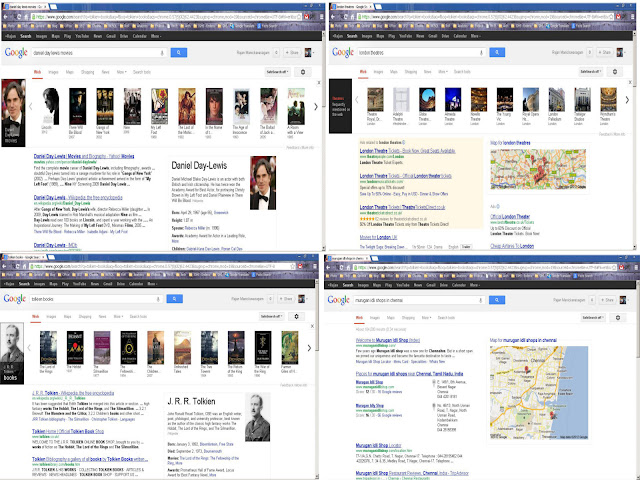Tech - Evolution of Google Search
In my previous article, I compared the evolution of google and bing. Now, google seems to be going deeper into it's knowledge graph.
The changes are becoming apparent for multi-word searches where a context can be derived. Try searching for 'daniel day lewis movies', 'tolkien books', 'murugan idli shop in chennai', 'london theatres'. The search results are completely transformed. I have to admit, I personally like the results. The results have a bit more coherence and context, not just a list of links to sites.
 |
| Search results from google.com on 27-November-12. Click image to zoom. |
As with everything, there are both pros and cons to the knowledge graph.
- Use curated content in the knowledge graph to offset the current lack of integration with popular social networking sites like twitter and facebook.
- Mitigate the risk of content moving behind paywalls (example - news) or state intervention (as being proposed in France, Germany).
- Building and maintaining the knowledge graph will be a more complicated task than simply an index pointing to content elsewhere on the web.
- Risk of losing fresh or trending content be it in the search relevance or in the customer experience.
I suppose the evolution in search is due to the ever increasing number of people and organizations using the internet. It is possible that people no longer are satisfied with 'vanilla' search results but require context such as social, location, shopping etc.
Interestingly, for the above search examples, currently there are no results from google+ (even though I was signed in). There is also the larger question of how the knowledge graph would integrate into other services/apps like majel and google now.


Comments
Post a Comment